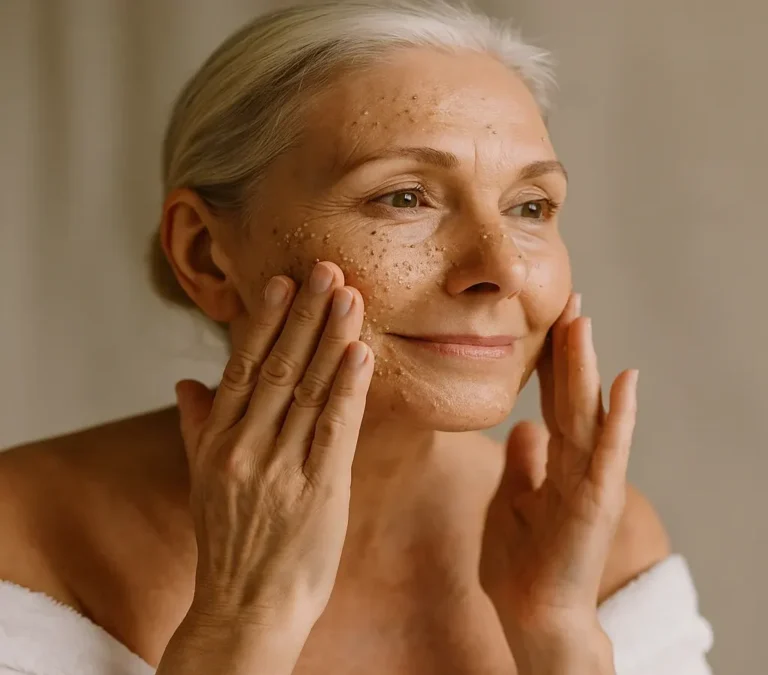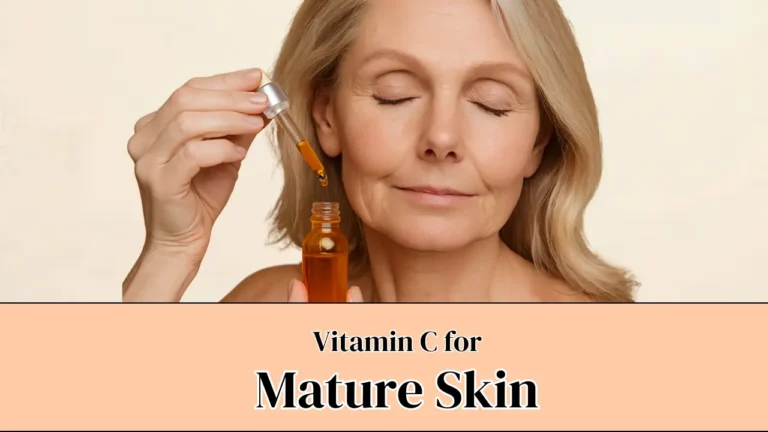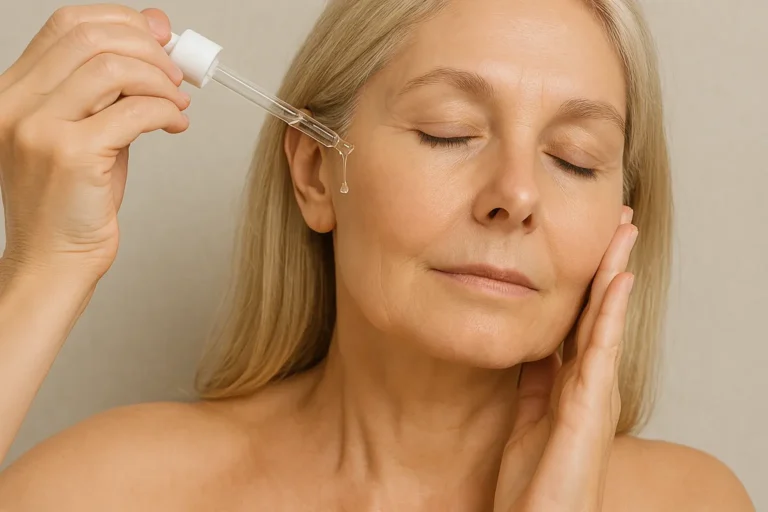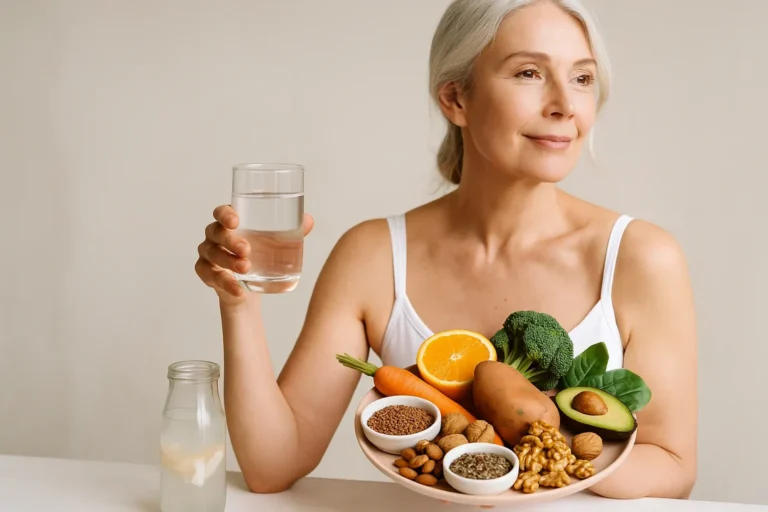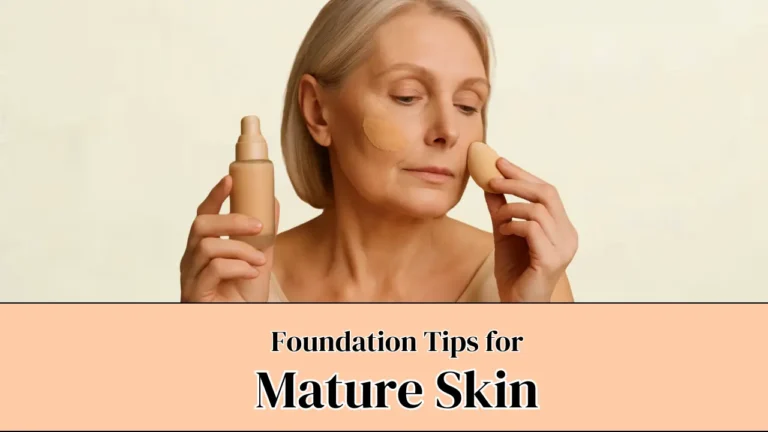Best Skincare Routine for Women Over 50 | Complete Guide
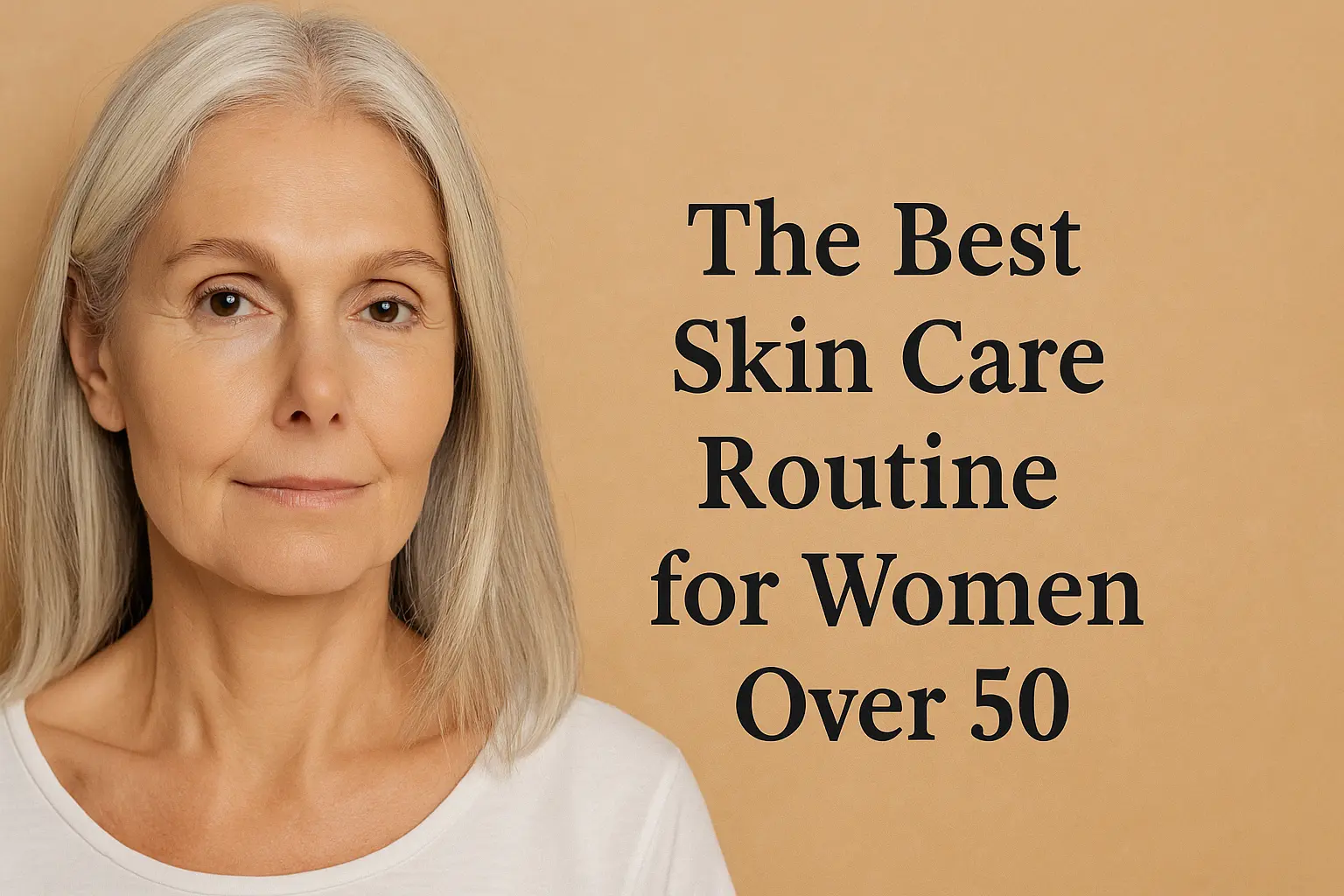
Growing old is a normal and lovely phenomenon. But along with age come physiological changes to the skin, which can be controlled, decelerated, and even somewhat reversed with the best skincare routine. For women over 50 and beyond, it’s essential to have a customized regimen that caters to the varying needs of their skin in order to preserve its radiance, elasticity, and youthful sheen.
This in-depth guide explores a well-rounded, no-brand, ingredient-based skincare routine for mature skin—divided into morning and evening steps, weekly treatments, and supportive lifestyle improvements. All recommendations are rooted in dermatological principles and age-related skincare science, as emphasized by expert-backed insights like those from Cleveland Clinic’s guide to anti-aging skincare.
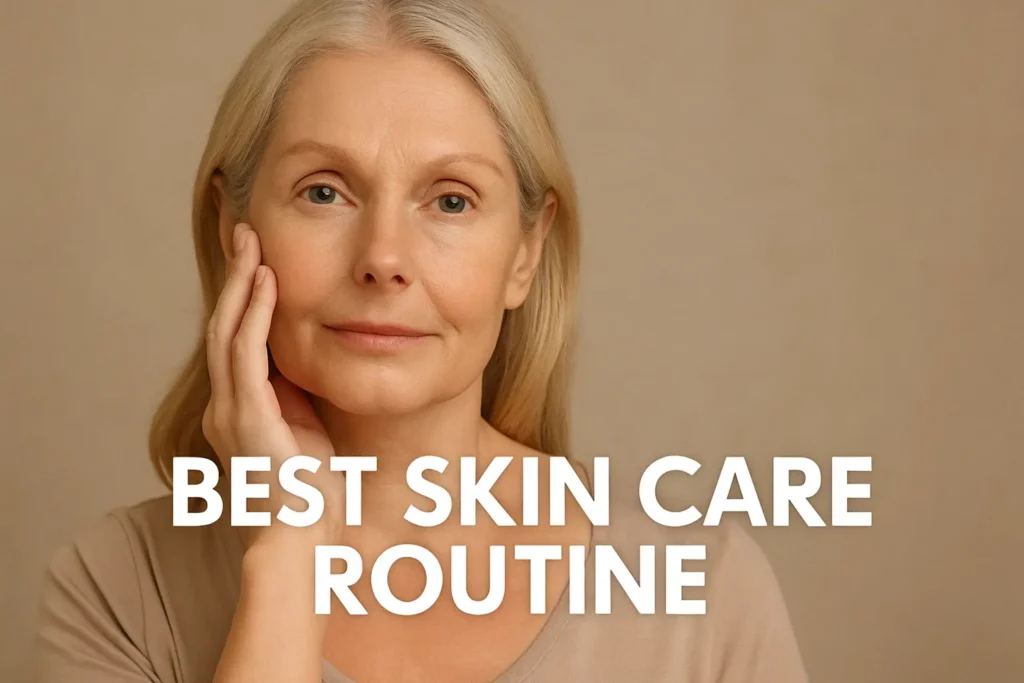
Understanding Skin After 50
As women get older, hormonal changes — particularly decreased estrogen levels — affect the skin in the following ways:
- Lower collagen and elastin: Skin becomes thinner, less taut, and more likely to sag.
- Less oil production: Causes dryness, flakiness, and more fine lines.
- Less cell turnover: Skin looks dull and patchy.
- Greater sensitivity: Skin is reactive and might not be able to handle harsh ingredients.
- Accumulation of sun damage: Accumulation of years of exposure to UV leads to pigmentation, age spots, and texture.
Considering these alterations, an advanced skincare routine would want to:
- Rehydrate and restore moisture
- Stimulate collagen production
- Protect against environmental stressors
- Foster gentle exfoliation and cell regeneration
- Support the skin barrier
Morning Best Skincare Routine: Protection and Hydration
The goal in the morning is to cleanse, treat, and protect the skin from environmental aggressors like UV rays and pollution.
1. Gentle Cleanser
Start with a hydrating, non-stripping cleanser that respects the skin’s barrier. Look for:
- Cream or gel-based formulas
- Low or neutral pH
- Free of sulfates or alcohol
Ingredients to seek
- Glycerin
- Panthenol (Vitamin B5)
- Aloe vera
- Chamomile extract
Avoid
- Foaming cleansers
- High pH soaps
- Fragrances if you have sensitive skin
2. Hydrating Toner or Essence
A toner helps to balance the skin’s pH and provides a base layer of hydration.
Key ingredients:
- Hyaluronic acid
- Rose water
- Allantoin
- Cucumber extract
Apply with hands or a cotton pad and press gently into the skin.
3. Antioxidant Serum
A powerful step to neutralize free radicals and brighten the skin tone.
Look for
- Vitamin C (L-ascorbic acid or derivatives like sodium ascorbyl phosphate)
- Ferulic acid
- Niacinamide (Vitamin B3)
- Resveratrol
Benefits
- Reduces pigmentation
- Stimulates collagen synthesis
- Protects from oxidative stress
4. Moisturizer with SPF
Hydration and sun protection in one step. Choose a broad-spectrum sunscreen with SPF 30 or higher.
Hydrating agents
- Ceramides
- Squalane
- Glycerin
- Urea (in low concentration)
Sun-protective ingredients:
- Zinc oxide
- Titanium dioxide (for sensitive skin)
- Avobenzone (if you tolerate chemical filters)
Apply generously to face, neck, and chest.
Evening Best Skincare Routine: Repair and Rejuvenation
Evening is the ideal time to treat, repair, and nourish the skin while it is in recovery mode.
1. Double Cleanse (if wearing makeup/sunscreen)
Step 1: Oil-based cleanser to dissolve makeup and sebum Step 2: Gentle cream or gel cleanser to remove residue
Oil cleansing ingredients
- Sunflower seed oil
- Sweet almond oil
- Jojoba oil
2. Hydrating Essence or Toner
Re-apply a hydrating toner or essence post-cleansing to prepare skin for active ingredients.
3. Treatment Serum
This is where active ingredients come in to target specific concerns:
For fine lines and wrinkles
- Retinoids (Retinol, Retinaldehyde, Bakuchiol for sensitive skin)
- Peptides (signal peptides, copper peptides)
For pigmentation and dullness
- Niacinamide
- Licorice root extract
- Alpha arbutin
For dryness and barrier repair
- Ceramides
- Panthenol
- Beta-glucan
Apply sparingly and avoid layering too many actives at once.
4. Eye Cream
The eye area is thinner and more delicate. Use a specific cream to hydrate and reduce puffiness.
Ideal ingredients
- Caffeine (reduces puffiness)
- Hyaluronic acid (plumps fine lines)
- Peptides (firming)
5. Night Cream or Sleeping Mask
Use a richer formulation than daytime moisturizer to seal in moisture and deliver overnight nourishment.
Hydrating ingredients
- Shea butter
- Ceramides
- Fatty acids
- Squalane
Reparative ingredients
- Retinol (used in small amounts)
- Niacinamide
- Centella Asiatica
Weekly Skincare Treatments
1. Exfoliation (1-2x/week)
As skin renewal slows, exfoliation becomes essential to remove dead skin cells and boost glow. But it must be gentle.
Types
- Chemical exfoliants (preferred over physical scrubs)
Gentle exfoliating acids
- Lactic acid (hydrating and mild)
- Mandelic acid (great for sensitive skin)
- Polyhydroxy acids (PHAs)
Avoid
- Harsh scrubs with walnut or apricot shells
- Frequent exfoliation which can damage the skin barrier
2. Hydrating Mask (1-2x/week)
Boost skin hydration with a gel or cream mask that replenishes moisture and soothes.
Ingredients
- Hyaluronic acid
- Aloe vera
- Cucumber extract
- Panthenol
- Glycerin
Apply for 15-20 minutes after cleansing and before serum.
3. Sheet Masks (Optional)
Choose sheet masks infused with anti-aging serums for a pampering session.
Focus on
- Firming
- Brightening
- Deep hydration
Lifestyle Factors That Support Skin Health
1. Diet
What you eat reflects on your skin.
- Include: leafy greens, berries, fatty fish, nuts, avocados
- Avoid: processed sugars, excess caffeine, alcohol
Key nutrients:
- Omega-3s (anti-inflammatory)
- Antioxidants (Vitamin C, E)
- Zinc (skin healing)
- Collagen (via bone broth or supplements)
2. Hydration
Drink at least 8 glasses of water daily. Proper hydration helps maintain elasticity and flush toxins.
3. Sleep Hygiene
7-9 hours of sleep per night helps skin repair and regenerate.
- Use a silk pillowcase to prevent friction
- Elevate your head to reduce morning puffiness
4. Stress Management
Chronic stress increases cortisol, which breaks down collagen and causes inflammation.
- Practice yoga, deep breathing, or mindfulness
5. Sun Protection Beyond the Face
- Apply SPF to the neck, hands, chest, and ears
- Wear hats and sunglasses outdoors
Final Thoughts
You don’t need a 15-step skincare routine to look radiant in your 50s and beyond. What you need is consistency, patience, and ingredient awareness. Focus on gentle, nourishing, and scientifically backed skincare principles.
Your skincare ritual should feel calming, empowering, and tailored to your needs. Aging gracefully isn’t about hiding your age but about embracing it while giving your skin the love and care it deserves.
Remember: The skin is your largest organ, and it reflects how you treat yourself inside and out. Treat it kindly, and it will glow for years to come.

